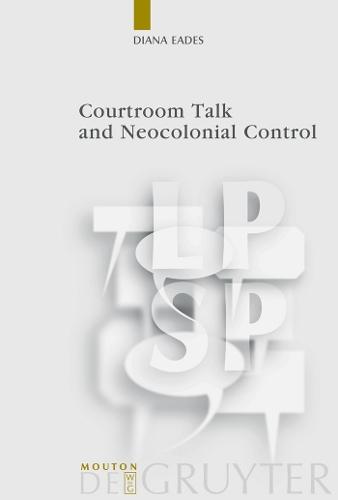Overview
The book uses critical sociolinguistic analysis to examine the social consequences of courtroom talk. The focus of the study is the cross-examination of three Australian Aboriginal boys who were prosecution witnesses in the case of six police officers charged with their abduction. The analysis reveals how the language mechanisms allowed by courtroom rules of evidence serve to legitimize neocolonial control over Indigenous people. In the propositions and assertions made in cross-examination, and their adoption by judicial decision-makers, the three boys were constructed not as victims of police abuse, but rather in terms of difference, deviance and delinquency. This identity work addresses fundamental issues concerning what it means to be an Aboriginal young person, as well as constraints about how to perform or live this identity, and the rights to which Aboriginal people can lay claim, while legitimizing police control over their freedom of movement. Understanding this courtroom talk requires analysis of the sociopolitical and historical actions and structures within which the courtroom hearing was embedded. Through this analysis, the interrelatedness of structure, agency, constraint and change, which is central to critical sociolinguistics, becomes apparent. In its investigation of language ideologies that underpin courtroom talk, as well as the details of how language is used, and the social consequences of this talk, the book highlights the need for far-reaching changes to courtroom rules of evidence.
Full Product Details
Author: Diana Eades ,
Diana Eades
Publisher: De Gruyter
Imprint: De Gruyter Mouton
Volume: 22
Dimensions:
Width: 15.50cm
, Height: 2.40cm
, Length: 23.00cm
Weight: 0.705kg
ISBN: 9783110204827
ISBN 10: 3110204827
Pages: 407
Publication Date: 15 July 2008
Recommended Age: College Graduate Student
Audience:
Professional and scholarly
,
Professional and scholarly
,
Professional & Vocational
,
Professional & Vocational
Format: Hardback
Publisher's Status: Active
Availability: In Print

This item will be ordered in for you from one of our suppliers. Upon receipt, we will promptly dispatch it out to you. For in store availability, please contact us.
Reviews
The story that Eades tells is compelling. By carefully unpacking the speech patterns of boys, the questioning strategies of the defense counsel, and the historical context of the event, she leaves no question whether the boys were victimized by the police or whether the legal system participated in that victimization With its close attention to linguistic, social, and historical detail, this book makes an important contribution to sociolinguistics, sociolegal studies, and critical race studies. Jennifer Andrus in: Language in Society 39/2010 Courtroom Talk and Neocolonial Control is the mostconceptually sophisticated, comprehensive and compelling attempt to managethe daunting challenge of macro-micro integration in the law and languageliterature and one that brings this crucial theoretical issue to the forefront ofnot just language and law studies or forensic linguistics but social science moregenerally. This is necessary reading not only for socio- and forensic linguistsbut law and
Author Information
Diana Eades, University of New England, Armidale, Australia.




